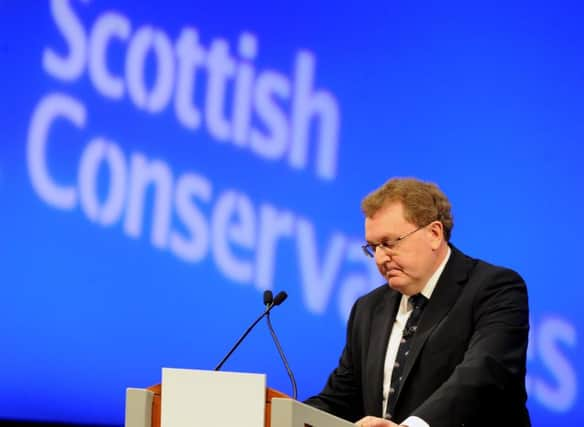David Mundell: Powers should reach across Scotland


Devolution is not a one-stop journey from London to Edinburgh. It must continue beyond– and empower every one of our local communities in every part of our country.
This is the next big debate in Scottish politics. By delivering the Smith Agreement, the UK Government is ensuring there will be substantial new powers flowing from Westminster to Holyrood. But if the process stops there, devolution in Scotland will not be worthy of the name.
Advertisement
Hide AdAdvertisement
Hide AdPut simply, the powers currently available to local authorities and communities are inadequate in a 21st century political landscape where decentralisation is increasingly the norm. I am not alone in this belief.
Lord Smith of Kelvin was explicit on this and made it the subject of one his personal recommendations in the Smith Agreement. In Glasgow, successive leaders of the City Council have called for the tools they need to let Glasgow flourish and compete with rivals like Barcelona, Milan and Melbourne.
City Deals have become part of the political landscape, designed to push power out of London and into communities across our country.
The leaders of Liverpool, Manchester, Leeds and Sheffield – none of them Conservatives – have found willing partners in George Osborne, David Cameron and Greg Clark, the UK Secretary of State for Communities and Local Government, in giving them the powers they need to make their areas prosper.
The Cities and Local Government Devolution Bill, which the UK Government is taking through Parliament right now, is a case in point.
The approach is bottom up, not top down. It does not force changes on councils, but establishes a legal framework which allows them to drive their own empowerment. Combined authorities can take new powers for their area, controlling local transport, housing, strategic planning, health, social care and skills training to boost growth. But one size does not fit all – what is right for our big cities is not necessarily right for our villages and towns.
Why shouldn’t proud and historic Royal Burghs like Langholm in my constituency have more of a direct say – why don’t community councils take on more of a role?
Unfortunately, the Scottish Government does not seem to share this enthusiasm for giving away power. As we saw in last week’s Scottish Budget, local government seems to be viewed as a convenient cash cow, an easy way of avoiding unpopular decisions while making others, literally, pay the price.
Advertisement
Hide AdAdvertisement
Hide AdThe experience of Police Scotland has shown very graphically that bigger is not always better. Bute House does not always know best.
I believe the centralising tendency displayed by the Scottish Government is fighting against the tide of progress.
We cannot afford to be left behind as the rest of the United Kingdom revolutionises how it governs itself.
It’s time we had a proper debate about devolution within Scotland – it needs to be front and centre of the Scottish election campaign next year and the debate needs to start now.
l David Mundell is Secretary of State for Scotland